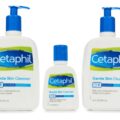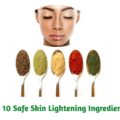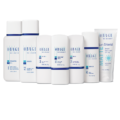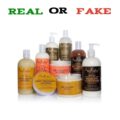Following the FDA’s advice to consumers not to use any hand sanitizer manufactured by Eskbiochem SA de CV in Mexico, due to the potential presence of methanol (wood alcohol), a substance that can be toxic when absorbed through the skin or ingested. There has been heightened anxiety and concern among consumers about the safety of Mexican products especially health and skin care products.
Eskbiochem SA de CV in Mexico produces a wide range of skincare products for companies in the United States, Canada, and many other countries. In addition, Esk biochem produces liquid detergents for professional use in laundry and home, a wide range of body shampoo, and many other cleaning products including hand sanitizers.
Are Mexican Skin Care Products Safe?
With the exception of the nine hand sanitizers manufactured by Eskbiochem which were found to contain methanol by the FDA, No other skin care product or cleaning product manufactured by the company has been flagged as toxic.
However, consumers need to take extreme care when purchasing health and skin care products from countries with lax regulations due to efficacy, safety, and quality control issues that could adversely affect health. A growing body of hazard-based evidence suggests connections to long-term health concerns like cancer and reproductive problems. Skincare specialists also compiled a list of the harmful ingredients that are present in beauty and skincare products. For safety purposes, search for them on the labels of your skincare products and analyze the connection between these ingredients and certain health problems. Here is a list of the top 10 chemicals to avoid if possible.
Parabens
Parabens are used as chemical preservatives in a wide array of personal care products such as moisturizers, shampoos, foundations, and many more. Over the past few years, there has been a huge debate about whether parabens are safe to use or not. Some say an excessive amount of exposure to parabens may lead to breast cancer, but some argue that daily cosmetic exposure to parabens does not cause you any harm. Basically, everyone’s skin reacts differently depending on various chemicals and skin types. If you would like to take caution, you can definitely find many products without parabens.
Sulfates
Again, one of the ingredients that are widely disputed whether it is safe to use or not is Sulfate. You probably are contacting with sulfates on a daily basis. Sulfates are also found in a variety of products from toothpaste to cleansers to also help with foaming. There are a lot of different types of sulfates, but the ones that are used most commonly are sodium lauryl sulfate (SLS) and sodium Laureth sulfate (SLES). Sulfates are known to strip away valuable moisture and protective barriers, irritating the skin more. Some say it causes no problem in small amounts, but others say it can cause cancer when combined with other substances or heated.
Phthalates
Phthalates are used in cosmetics as lubricants (softeners). You can find these in products such as nail polish, moisturizers, shampoos, hair sprays, toys, detergents, and other variety of products. They are known to be endocrine disruptors that are linked to breast cancer and reproductive birth defects in males and females. Phthalates are also known to have some possible effects on hormones. Unfortunately, this is included in many “fragrances” so it is hard to detect in products. Here are some ways to avoid phthalates.
Fragrance
“But I like nice smelling things!!” some people say. Why is fragrance (also called perfume) bad for your skin? The fragrance is basically a blend of aromatic extracts from natural and synthetic ingredients. Used in nearly 50% of beauty products, it actually has a LOT of unknown toxic chemicals that can be harmful to you. Without you knowing, fragrances can irritate the skin, have toxic hormonal effects, and may even cause cancer. It may smell fabulous, but it can lead to not-so-fabulous effects on your skin and health. As an alternative, try to find natural fragrances that are chemical-free.
Formaldehyde
Formaldehyde is a colorless, flammable gas. Widely used as a preservative in skincare and cosmetics, it is mainly used in nail polish, makeup, lotions, and deodorants among many other products. Short-term exposure can cause skin irritation, difficulty in breathing, watery eyes, and burning in the nose when inhaled. Also, according to The International Agency for Research on Cancer, formaldehyde is classified as a human carcinogen. If your job (such as nail artist, salon stylist, etc) requires you to be exposed to a copious amount of formaldehyde, make sure your work environment has ventilation or windows so that you can reduce exposure to it.
Phenoxyethanol
Used as an anti-bacterial in cosmetics and stabilizer in perfumes, phenoxyethanol is actually very harmful. It is harmful if swallowed, inhaled, or absorbed through the skin, especially to nursing mothers or infants. Phenoxyethanol can have an effect on the brain and the central nervous system. It irritates skin and eyes and can cause blistering on the skin as well. Although many skin care products (even some organic products as well) use phenoxyethanol in small amounts that are “not harmful” to the skin, if you use the product multiple times a day, every day, it can cumulate and possibly affect you.
Alcohols
There are good and bad alcohols. Bad alcohols are methanol, isopropyl alcohol, propanol, benzyl alcohol, and sd alcohol (alcohol denat.) to name a few. They can be extremely drying and irritating to the skin, but also may even cause inflammation because they strip the skin off of its natural protection. By breaking down the skin’s barrier, alcohols destroy the substances that protect your skin’s health over the long term. Although alcohols may feel good because they are light and make your skin not feel greasy, because it damages the skin barrier, it leads to an increase of acne-causing bacteria and makes inflammation worse.
PEG
PEG (polyethylene glycols) compounds are widely used in cosmetics as thickeners and softeners. It also functions as an absorption enhancer which allows both good and bad ingredients to be absorbed faster into deeper parts of the skin. If used on broken or damaged skin, it can cause irritation and system toxicity. In addition, PEGs can reduce the skin’s moisture levels and speed up skin aging.






